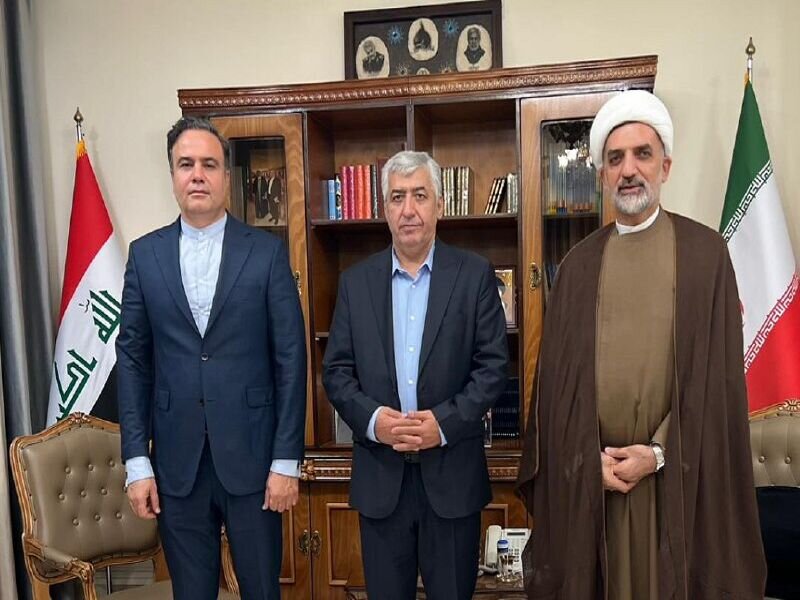Iran seeks to expand tourism ties with Iraq

TEHRAN – Iran aims to broaden tourism cooperation with Iraq across four sectors, a senior industry official said.
Hormatollah Rafiei, director of the Association of Iranian Travel Agencies, said the two sides have agreed to develop health, sightseeing, religious, and scientific tourism. He made the remarks after a meeting with Iran’s cultural attaché in Iraq.
According to IRNA, Rafiei, who traveled to Baghdad to make preliminary arrangements for holding Iran-Iraq Tourism Roadshow, in a meeting with the Iranian Cultural Attache, emphasized the decision of the country's private sector in the tourism industry to develop sightseeing, pilgrimage, scientific, and health tourism between the two countries.
He explained that Iranian tour operators, who will travel to the three cities of Baghdad, Basra, and Karbala in the Iran-Iraq tourism roadshow event, should focus their advertising and negotiations on four axes proposed and agreed upon by the Association of Iranian Travel Agencies with Iraq’s state and private sector involved in the tourism industry.
Rafiei continued that Hojjatoleslam Gholamreza Abazari, Iran's cultural attaché in Iraq, emphasized that considering that 50 percent of Iran's inbound tourism comes from Iraq and that the tourism fair between the two countries is being held for the first time since the Islamic Revolution of Iran by tourism industry’s private sector, he considers it his duty to support holding this event.
Announcing Iraq's readiness to develop tourism relations with Iran in the fields of cultural, sightseeing, and health tourism, in addition to pilgrimage tourism, Rafiei said that about 3.5 million tourists from Iraq travel to Iran annually, and efforts are being made to increase this figure to five million incoming tourists by the end of this year.
Tourism between Iran and Iraq is deeply rooted in religious pilgrimage, or Ziyarat, which draws millions of visitors annually to sacred sites. Iraq hosts key Shi’a shrines in Karbala and Najaf, while Iran welcomes pilgrims to Mashhad, home to the shrine of Imam Reza (A.S.), and Qom, a major center of Shi’a scholarship. Cities such as Shiraz, with its rich Islamic heritage, also attract religious visitors.
Beyond pilgrimage, both countries share centuries of cultural, historical, and linguistic connections that can be further developed into broader tourism exchanges. Iran’s ancient cities, including the UNESCO-registered Persepolis and Isfahan, showcase Persian architecture and world heritage sites, while Iraq is home to the ruins of Babylon and the Mesopotamian cradle of civilization. Such sites appeal to travelers interested in history and archaeology.
Cultural tourism opportunities also extend to traditional music, crafts, and cuisine, which reflect shared influences and mutual appreciation across the two nations. Moreover, natural landscapes such as the Zagros Mountains, marshlands in southern Iraq, and Iran’s diverse climate--from deserts to lush forests--provide eco-tourism potential.
Strengthening tourism ties between Iran and Iraq could therefore go beyond religious travel, promoting historical exploration, cultural exchange, and nature-based tourism, while deepening people-to-people connections across borders.
KD
Leave a Comment